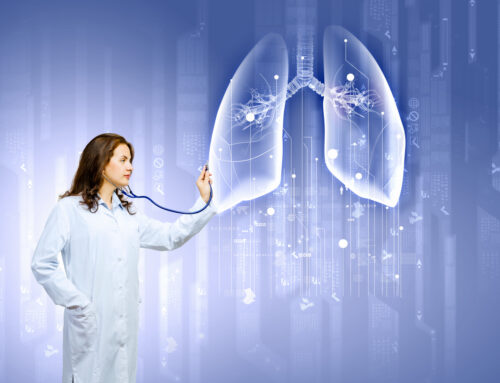 Florida Lung, Asthma and Sleep Specialists have repeatedly reported to you on lung cancer and listed many of the deadly facts surrounding the diagnosis and treatment , but we never tire of increasing your awareness of the facts behind this dreaded disease.
Florida Lung, Asthma and Sleep Specialists have repeatedly reported to you on lung cancer and listed many of the deadly facts surrounding the diagnosis and treatment , but we never tire of increasing your awareness of the facts behind this dreaded disease.
Because it is the first month of a new year, it seems like an appropriate time to review and update the basic facts about lung cancer so you will feel informed and up to date. Don’t worry; we have boiled it down to ten essential secrets or truths of the disease in the FLASS two-part series “10 Deadly Secrets.”
Do you realize that lung cancer causes more deaths every year than colorectal, breast, and prostate cancers combined?
1. A Dreaded Diagnosis: Lung cancer is so potent, so deadly, it spreads before you see any symptoms, and you can be very sick with it before it registers on the imaging scan, but remember, at FLASS, there is always hope and cutting-edge scientists are unraveling the mysteries of lung cancer every day.
Much is known about this type of cancer, and you should learn all you can if you or someone you love has been diagnosed. For example, if your doctor tells you what stage you are enduring, he is using the TNM staging system.
“This information helps the doctor prepare you for what needs to be done next. Always ask him or her questions if you have any. The more you understand, the more you can partner with your doctor.” Find out what you might need to know about Stage 1 or the other Stages, at this informative and reliable online cancer resource.
We also invite you to visit our own special page describing symptoms of non-small cell lung cancer. That page could save your life or the life of some one you love, by justifying your visit to Florida Lung, Asthma and Sleep Specialists.
2. Shocking Statistics: According to the American Lung Association, lung cancer is the leading cause of cancer-related deaths in the United States. Lung Cancer’s favorite targets are adults over 55. Two out of three lung cancer patients are adults over 55. In fact the average age for diagnosis happens to be 70. Only 2 percent of all cases are found in people younger than 45.
At Florida Lung, Asthma and Sleep Specialists, we know Lung Cancer targets adults over the age of 55. Some two out of three people diagnosed with lung cancer are 65 or older, and the average age at diagnosis is about 70, but you are not a statistic. You are an individual case, a unique individual, and FLASS doctors and professionals are here for you, to keep you from becoming a statistic. At FLASS, we are fond of saying you are like family to our doctors and staff.
2. Cease the Smoke: There is no doubt about it, “Smoking causes lung cancer. Although tobacco smoking is on the decline in the United States, some 37 percent of Americans are current or former smokers. About 85 percent of all U.S. lung cancer cases are linked to smoking.”
3. A Seditious Secret: Lung cancer begins as a symptom-free disease. according to the American Cancer Society. But let’s take a look at how it begins its foothold on your life.
a. Pre-cancerous changes happen inside structures of the respiratory system, including lungs, the bronchi, the tiny bronchioles, and even the more diminutive alveoli.
b. Genetics inside lung cells stimulate the cell so grow faster. “At this point, the cancerous cells can’t be seen on X-rays or other imaging tests,” and they, as we said above, “don’t  cause symptoms.”
cause symptoms.”
4. A Growing Problem: Lung cancer spreads before detection, growing tumors along the way. Likewise the cancer cells “can trigger the growth of new blood vessels, which feed the tumor and help it grow until it eventually causes symptoms and can be seen on X-rays or other imaging tests.”
In final irony, the cancer cells break away from the first tumor and spread (metastasize) into other parts of the body.
Here’s the Deadly Secret: “One reason lung cancer is such a life-threatening disease is because it can metastasize even before it causes symptoms or can be picked up by an imaging scan.” And still, our patients at FLASS do not dispair; we have new technologies and treatments to help us fight even this development–or at least slow it down.
5. Not All Lung Cancers Are Deadly: Because lung cancer has a poor prognosis, it has a very bad reputation. Remember, some lung cancers can be treated. Every day we encounter encouraging studies and research into cancer treatments that can save lives.
New And Promising Research
For example, recently we discovered new research on the cancer drug paclitaxel. In a unique way, this chemotherapy just became more effective. Researchers from the University of North Carolina at Chapel Hill have put it into a delivery form they derive from a patient’s own immune system. This packaging actually protects the medical treatment from being destroyed by the body’s own defense system. Thus, the entire payload is freed to attack its targeted tumor.
“That means we can use 50 times less of the drug and still get the same results,” said Elena Batrakova, Ph.D., an associate professor in the UNC Eshelman School of Pharmacy. “That matters because we may eventually be able to treat patients with smaller and more accurate doses of powerful chemotherapy drugs resulting in more effective treatment with fewer and milder side effects.”
and milder side effects.”
Still, it is disheartening that almost 90 percent of people diagnosed with lung cancer will die. However, you should know that early-stage, non-small cell lung cancer can be treated with surgery and stereotactic body radiation therapy, so patients can appreciate more years in their life and more life in their years!
Now you have five of the top ten factual essentials you need to understand about lung cancer. Thank you for reading our blog, and we hope you join us next week for Part Two as we open the New Year by re-visiting the secret facts of lung cancer.


